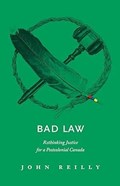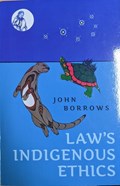Narrow Results By
Educating the body : a history of physical education in Canada
https://archives.whyte.org/en/permalink/catalogue26240
- Medium
- Library - Book (including soft-cover and pamphlets)
- Published Date
- 2024
- Author
- Hall, M. Ann, Kidd, Bruce and Vertinsky, Patricia
- Publisher
- Toronto ; Buffalo ; London : University of Toronto Press
- Call Number
- 08.1 H14e
- Publisher
- Toronto ; Buffalo ; London : University of Toronto Press
- Published Date
- 2024
- Physical Description
- xvi, 305 pages : illustrations ; 26 cm
- Abstract
- The thesis of this work sets out a history of physical education in Canada with a focus on the major advocates, innovators, and institutions that helped shaped it. This work places the historical narrative within the social, economic, and political conditions that impacted institutions, advocates, and innovators as they influenced the formulation of state physical education schooling in Canada between the Ryerson era (1803-1882) and ending with the early decades of the 21st century. The title of the work, "Educating the Body" recognizes that "the body" has its own unique vocabulary and analysis, and as such, reflects the authors' belief that physical education curriculum should ideally enable the learner to direct their own discovery of body agency (and the joy of movement) in ways that are creative, self-expressive and true to their lived body experience. As the work demonstrates, however, waves of state-directed physical education curriculum each held their own agenda about how the "ideal" child and adolescent body should be trained within the context of hegemonic paradigms of dominance and control. The work is framed around three major developments that shape the analysis: a) the significant growth of critical, social scientific research about physical education and sport during the last 50 years (through the lens of social, material, feminist, post-structuralist and queer theory); b) the tensions underlying the evolution of kinesiology and the "displacement" (p. 13) of physical education as a school subject; and c) evidence from the Final Report of the Truth and Reconciliation Commission of Canada. -- Provided by publisher.
- Contents
- Ryerson and His Vision -- Towards a Pan-Canadian Curriculum -- The Margaret Eaton School: Forty Years of Women's Physical Education -- Fit for Living -- Setting a Heroic Agenda--Realizing the Possibilities -- Changing Times and New Initiatives -- Seeking Optimism in a Contested Field.
- ISBN
- 9781487508562
- Accession Number
- P2024.02
- Call Number
- 08.1 H14e
- Collection
- Archives Library
This material is presented as originally created; it may contain outdated cultural descriptions and
potentially offensive content.
Read more.
Decolonizing sport
https://archives.whyte.org/en/permalink/catalogue26241
- Medium
- Library - Book (including soft-cover and pamphlets)
- Published Date
- 2023
- Publisher
- Halifax ; Winnipeg : Fernwood Publishing
- Call Number
- 07.2 F77d
- Responsibility
- Edited by Janice Forsyth, Christine O'Bonsawin, Russell Field, and Murray G. Phillips
- Publisher
- Halifax ; Winnipeg : Fernwood Publishing
- Published Date
- 2023
- Physical Description
- xi, 276 pages : illustrations ; 23 cm
- Subjects
- Canada
- History-Canada
- Education
- Sport
- Indigenous
- Indigenous Culture
- Indigenous People
- Indigenous Traditions
- Indigenous Customs
- Abstract
- The path to decolonization is difficult and complex, and can even be contradictory at times, as when an Indigenous community enlists the same corporate sponsor that will destroy its natural environment to provide sport programming for its youth. There is no easy way forward. The Black Lives Matter movement, and their massive followers on social media, propelled forward discussions about the inequities that Covid-19 highlighted with unprecedented momentum. Indigenous people in Canada voiced their concerns in solidarity, calling attention to disparities they faced in everything from impoverished Indigenous health care initiatives to the overrepresentation of Indigenous people in the Canadian justice system, demanding to be heard alongside systemic change. Structural adjustments were afoot, including changes in the professional sport leagues. In both the United States and Canada, people witnessed the toppling of racist sports team names and logos in the spring and summer, not the least of which included the American Washington NFL team (Redskins) and the Canadian Edmonton CFL team (Eskimos). Clearly Indigenous people and their allies saw sport as a part of this desire for social change. This multi-authored collection contributes to that desire by bringing the work of Indigenous and non-Indigenous allied scholars together to explore the history of sport, physical activity, and embodied physical culture in the Indigenous context. Including chapters that address Indigenous topics beyond the political boundaries of Canada, including the US, Australia, New Zealand/Aotearoa, and Kenya, this collection considers questions such as: How can the history of sport (a colonizing practice with European origins) exist in dialogue with Indigenous voices to open up possibilities for reconsidering the history of modern sport? How can Indigenous and anti-oppressive research methodologies/methods inform the study of sport history? What are the ethics and responsibilities associated with conducting an Indigenous sport or recreation history? How can sport history as a discipline be open to the study of traditional land-based recreation? How can the meanings of "sport" be made more inclusive to include a variety of recreational practices? How can sport historians learn from histories of colonization and how can they contribute to a more reciprocal approach to knowledge formation through Indigenous community engagement? How can the discipline of sport history meaningfully support movements of Indigenous resurgence, regeneration, and decolonization? -- Provided by publisher.
- Contents
- Ways of knowing: sport, colonialism, and decolonization / Janice Forsyth, Christine O'Bonsawin, Russell Field -- Beyond competition: an Indigenous perspective on organized sport / Brian Rice -- More than a mascot: how the mascot debate erases Indigenous people in sport / Natalie Welch -- Witnessing painful pasts: understanding images of sports at Canadian Indian residential schools / Taylor McKee and Janice Forsyth -- The absence of Indigenous moving bodies: whiteness and decolonizing sport history / Malcolm MacLean -- # 87: using Wikipedia for sport reconciliation / Victoria Paraschak -- Olympism at face value: the legal feasibility of Indigenous-led Olympic Games / Christine O'Bonsawin -- Canoe racing to fishing guides: sport and settler colonialism in Mi'kma'ki / John Reid -- Transcending colonialism?: rodeos and racing in Lethbridge / Robert Kossuth -- "Men pride themselves on feats of endurance": masculinities and movement cultures in Kenyan running history / Michelle M. Sikes -- Stealing, drinking, and not cooperating: sport and everyday resistance in Aboriginal settlements in Australia / Gary Osmond -- Let's make baseball!: practices of unsettling on the recreational ball diamonds of Tkaronto/Toronto / Craig Fortier and Colin Hastings -- Subjugating and liberating at once: Indigenous sport history as a double-edge sword / Brendan Hokowhitu.
- ISBN
- 9781773636344
- Accession Number
- P2024.02
- Call Number
- 07.2 F77d
- Collection
- Archives Library
This material is presented as originally created; it may contain outdated cultural descriptions and
potentially offensive content.
Read more.
School of racism : a Canadian history, 1830-1915
https://archives.whyte.org/en/permalink/catalogue26242
- Medium
- Library - Book (including soft-cover and pamphlets)
- Published Date
- 2023
- Author
- Larochelle, Catherine
- Publisher
- Winnipeg, Manitoba, Canada : University of Manitoba Press
- Edition
- First English-language edition
- Call Number
- 08.1 L32s
- Author
- Larochelle, Catherine
- Responsibility
- Translated by S.E. Stewart
- Edition
- First English-language edition
- Publisher
- Winnipeg, Manitoba, Canada : University of Manitoba Press
- Published Date
- 2023
- Physical Description
- viii, 464 pages : illustrations ; 24 cm
- Abstract
- Exposing the history of racism in Canada's classrooms Winner of the prestigious Clio-Quebec, Lionel-Groulx, and Canadian History of Education Association awards In School of Racism, Catherine Larochelle demonstrates how Quebec's school system has, from its inception and for decades, taught and endorsed colonial domination and racism. This English translation of the award-winning book extends its crucial lesson to readers across the country, bridging English- and French-Canadian histories to deliver a better understanding of Canada's past and present identity. Using postcolonial, antiracist, and feminist theories and methodologies, Larochelle examines late-nineteenth and early-twentieth-century classroom materials used in Quebec's public and private schools. Many of these textbooks, and others like them, made their way into curricula across Canada. Larochelle's innovative analysis illuminates how textual and visual representations found in these archives constructed Indigenous, Black, Arab, and Asian peoples as "the Other" while reinforcing the collective identity of Quebec, and Canada more broadly, as white. Uncovering the origins and persistence of individual and systemic racism against people of colour, Larochelle shows how Otherness was presented to--and utilized by--young Canadians for almost a century. School of Racism names the ways in which Canada's education system has supported and sustained ideologies of white supremacy--ideologies so deeply embedded that they still linger in school texts and programming today. The book offers new insight into how Canadian and Quebecois concepts of nationalism and racism overlap, helps educators confront racism in their classrooms, and deepens urgent discussions about race and colonialism throughout Canada. -- Provided by publisher.
- Contents
- Cover -- Contents -- Author's Note -- Introduction -- Chapter 1. The Theories of Otherness -- Chapter 2. Other Societies: Imperialist Knowledge and Orientalist Representations -- Chapter 3. The Other-Body, or Alterity Inscribed in the Flesh -- Chapter 4. The Indian: Domination, Erasure, and Appropriation -- Chapter 5. The Other Observed or "Teaching through the Eyes" -- Chapter 6. Of Missions and Emotions: Children and the Missionary Mobilization -- Conclusion -- Acknowledgements -- Appendix -- List of Abbreviations -- Notes -- Bibliography -- Index.
- ISBN
- 9781772840537
- Accession Number
- P2024.02
- Call Number
- 08.1 L32s
- Collection
- Archives Library
This material is presented as originally created; it may contain outdated cultural descriptions and
potentially offensive content.
Read more.
Braided learning : illuminating indigenous presence through art and story
https://archives.whyte.org/en/permalink/catalogue25539
- Medium
- Library - Book (including soft-cover and pamphlets)
- Published Date
- 2022
- Author
- Dion, Susan D.
- Publisher
- Vancouver, B.C. : Purich Books
- Call Number
- 07.2 D62b
- Author
- Dion, Susan D.
- Publisher
- Vancouver, B.C. : Purich Books
- Published Date
- 2022
- Physical Description
- 275 pages
- Abstract
- The Truth and Reconciliation Commission and Indigenous activism have made many Canadians uncomfortably aware of how little they know about First Nations, Métis, and Inuit peoples. In Braided Learning, Lenape-Potawatomi scholar and educator Susan Dion shares her approach to learning and teaching about Indigenous histories and perspectives. Métis leader Louis Riel illuminated the connection between creativity and identity in his declaration, “My people will sleep for a hundred years, but when they awake, it will be the artists who give them their spirits back.” Using the power of stories and artwork, Dion offers respectful ways to address challenging topics including treaties, the Indian Act, the Sixties Scoop, land claims, resurgence, the drive for self-determination, and government policies that undermine language, culture, and traditional knowledge systems. Braided Learning draws on Indigenous knowledge and world views to explain perspectives that are often missing from the national narrative. This generous work is an invaluable resource for Canadians trying to make sense of a difficult past, decode unjust conditions in the present, and work toward a more equitable future. -- Provided by publisher
- Contents
- Introduction: Indigenous Presence ; Requisites for Reconciliation ; Seeing Yourself in Relationship with Settler Colonialism ; The Historical Timeline: Refusing Absence, Knowing Presence, and Being Indigenous ; Learning from Contemporary Indigenous Artists ; The Braiding Histories Stories ; Conclusion: Wuleelham - Make Good Tracks ; Glossary and Additional Resources: Making Connections, Extending Learning
- ISBN
- 9780774880794
- Accession Number
- P2022.04
- Call Number
- 07.2 D62b
- Collection
- Archives Library
This material is presented as originally created; it may contain outdated cultural descriptions and
potentially offensive content.
Read more.
Madam Chancellor - Calgarian Grit McCreath on her new role at the University of Saskatchewan
https://archives.whyte.org/en/permalink/catalogue25129
- Medium
- Library - Periodical
- Published Date
- January 2020
- Author
- Darbyshire, Melanie
- Publisher
- Business in Calgary
- Call Number
- P - General
1 website
- Author
- Darbyshire, Melanie
- Responsibility
- Melanie Darbyshire
- Publisher
- Business in Calgary
- Published Date
- January 2020
- Physical Description
- p. 28 - 30
- Medium
- Library - Periodical
- Abstract
- Pertains to the appointment of Whyte Foundation board member Grit McCreath as the 16th Chancellor at the University of Saskatchewan
- Notes
- In Business Calgary, January 2020, p. 28-30
- Call Number
- P - General
- Collection
- Archives Library
- URL Notes
- Available online via Business in Calgary website
Websites
This material is presented as originally created; it may contain outdated cultural descriptions and
potentially offensive content.
Read more.
Nako´n-i'a wo! = Beginning Nakoda
https://archives.whyte.org/en/permalink/catalogue25060
- Medium
- Library - Book (including soft-cover and pamphlets)
- Published Date
- 2019
- Author
- McArthur, Armand (author)
- Kennedy, Wilma (author)
- Collette, Vincent (editor)
- Publisher
- Regina, Saskatchewan : University of Regina Press
- Call Number
- 07.2 C67n copy 1
- 07.2 C67n copy 2 reference
1 website
- Publisher
- Regina, Saskatchewan : University of Regina Press
- Published Date
- 2019
- Physical Description
- 252 pages
- Subjects
- First Nations
- Languages
- Guidebook
- Education
- Abstract
- Written for beginning learners of Nakoda (also known as Assiniboine), this workbook, arranged thematically, provides a Nakoda/English lexicon, a vocabulary, a table of kinship terms, a glossary of linguistic terminology, and exercises to do after each lesson. This book was made possible with the assistance of Elders and Language Keepers of the Nakoda Nation: Armand McArthur and Wilma Kennedy, Main Consultants; with additional contributions by Pete Bigstone, Leona Kroscamp, Freda O'Watch, and Ken Armstrong. (from University of Regina Press website)
- ISBN
- 9780889776623
- Accession Number
- P2020-1
- Call Number
- 07.2 C67n copy 1
- 07.2 C67n copy 2 reference
- Collection
- Archives Library
- URL Notes
- Summary on University of Regina Press website
Websites
This material is presented as originally created; it may contain outdated cultural descriptions and
potentially offensive content.
Read more.
Indigenous relations : insights, tips & suggestions to make reconciliation a reality
https://archives.whyte.org/en/permalink/catalogue25117
- Medium
- Library - Book (including soft-cover and pamphlets)
- Published Date
- 2019
- Author
- Joseph, Robert P.
- Joseph, Cynthia F.
- Publisher
- [Port Coquitlam, BC] : Indigenous Relations Press
- Call Number
- 08.1 J77i
1 website
- Responsibility
- Bob Joseph
- Cynthia Joseph
- Publisher
- [Port Coquitlam, BC] : Indigenous Relations Press
- Published Date
- 2019
- Physical Description
- 190 pages
- Subjects
- First Nations
- Education
- Politics
- Abstract
- We are all treaty people. This eagerly awaited sequel to the bestselling 21 Things You May Not Know About the Indian Act offers practical tools that will help you respectfully avoid missteps in your business interactions and personal relationships with Indigenous Peoples. This book will teach you about: Aboriginal Rights and Title, and the treaty process the difference between hereditary and elected leadership, and why it matters the lasting impact of the Indian Act, including the barriers that Indigenous communities face which terms are preferable, and which should be avoided Indigenous Worldviews and cultural traditions the effect of the United Nations Declaration on the Rights of Indigenous Peoples (UNDRIP) in Canada the truth behind common myths and stereotypes perpetuated about Indigenous Peoples since Confederation. In addition to being a hereditary chief, Bob Joseph is the President of Indigenous Corporate Training Inc., which offers programs in cultural competency. Here he offers an eight-part process that businesses and all levels of government can use to work more effectively with Indigenous Peoples, which benefits workplace culture as well as the bottom line. Embracing reconciliation on a daily basis in your work and personal life is the best way to undo the legacy of the Indian Act. By understanding and respecting cultural differences, you're taking a step toward full reconciliation between Indigenous and non-Indigenous peoples.(from Indigenous Corporate Training Inc. website)
- Contents
- Indigenous or Aboriginal: does it matter? -- Cultural diversity among indigenous peoples -- Indigenous identity and governance structure -- Circle of understanding: recognizing indigenous worldviews -- Working with communities: employment barriers and other issues -- Nation to nation: understanding treaties, then and now -- Isn't it true that ...? myth vs. reality -- Respect: a path toward working effectively with indigenous peoples -- The personal side of reconciliation.
- ISBN
- 9781989025642
- Accession Number
- P2020-1
- Call Number
- 08.1 J77i
- Collection
- Archives Library
- URL Notes
- Available to order online via the Indigenous Corporate Training Inc. website
Websites
This material is presented as originally created; it may contain outdated cultural descriptions and
potentially offensive content.
Read more.
Bad law : rethinking justice for a postcolonial Canada
https://archives.whyte.org/en/permalink/catalogue25143
- Medium
- Library - Book (including soft-cover and pamphlets)
- Published Date
- 2019
- Author
- Reilly, John
- Publisher
- [Victoria, British Columbia] : Rocky Mountain Books
- Edition
- First edition
- Call Number
- 07.2 R27bl
1 website
- Author
- Reilly, John
- Responsibility
- John Reilly
- Edition
- First edition
- Publisher
- [Victoria, British Columbia] : Rocky Mountain Books
- Published Date
- 2019
- Physical Description
- 231 pages
- Abstract
- From the bestselling author of Bad Medicine and its sequel Bad Judgment comes a wide-ranging, magisterial summation of the years-long intellectual and personal journey of an Alberta jurist who went against the grain and actually learned about Canada’s indigenous people in order to become a public servant. ”Probably my greatest claim to fame is that I changed my mind,” writes John Reilly in this broadly cogent interrogation of the Canadian justice system. Building on his previous two books, Reilly acquaints the reader with the ironies and futilities of an approach to justice so adversarial and dysfunctional that it often increases crime rather than reducing it. He examines the radically different indigenous approach to wrongdoing, which is restorative rather than retributive, founded on the premise that people are basically good and wrongdoing is the aberration, not that humans are essentially evil and have to be deterred by horrendous punishments. He marshalls extensive evidence, including an historic 19th-century US case that was ultimately decided according to Sioux tribal custom, not US federal law. And then he just comes out and says it: “My proposition is that the dominant Canadian society should scrap its criminal justice system and replace it with the gentler, and more effective, process used by the indigenous people.” Punishment; deterrence; due process; the socially corrosive influence of anger, hatred and revenge; sexual offences; the expensive futility of “wars on drugs”; the radical power of forgiveness—all of that and more gets examined here. And not in a bloodlessly abstract, theoretical way, but with all the colour and anecdotal savour that could only come from an author who spent years watching it all so intently from the bench. (From Rocky Mountain Books website)
- Contents
- The beginning -- Learning -- Getting to know the Stoneys -- Restorative justice -- The origins of processes -- The evil Cornwallis -- Milton Born With a Tooth -- The right thing -- Respect -- Paradigm change -- Crow Dog v. Spotted Tail -- Rupert Ross -- Punishment -- Deterrence -- Due process -- Sawbonna -- Rev. Dale Lang -- To forgive or not to forgive -- Anger, hatred, vengeance -- Advocacy vs. conversation -- Polarization -- Drug prohibitions -- Sexual offences -- One size fits all -- Shifting focus from judicial solutions to community solutions -- The TRC -- FAQ.
- ISBN
- 9781771603348
- Accession Number
- P2020-6
- Call Number
- 07.2 R27bl
- Collection
- Archives Library
- URL Notes
- Publication on Rocky Mountain Books website
Websites
This material is presented as originally created; it may contain outdated cultural descriptions and
potentially offensive content.
Read more.
Law's indigenous ethics
https://archives.whyte.org/en/permalink/catalogue25268
- Medium
- Library - Book (including soft-cover and pamphlets)
- Published Date
- 2019
- Author
- Borrow, John
- Publisher
- Toronto ; Buffalo ; London : University of Toronto Press,
- Call Number
- 07.2 B63l
1 website
- Author
- Borrow, John
- Responsibility
- John Borrow
- Publisher
- Toronto ; Buffalo ; London : University of Toronto Press,
- Published Date
- 2019
- Physical Description
- viii, 381 pages
- Subjects
- First Nations
- History
- Treaties
- Education
- Politics
- Abstract
- Law's Indigenous Ethics examines the revitalization of Indigenous peoples' relationship to their own laws and, in so doing, attempts to enrich Canadian constitutional law more generally. Organized around the seven Anishinaabe grandmother and grandfather teachings of love, truth, bravery, humility, wisdom, honesty, and respect, this book explores ethics in relation to Aboriginal issues including title, treaties, legal education, and residential schools. With characteristic depth and sensitivity, John Borrows brings insights drawn from philosophy, law, and political science to bear on some of the most pressing issues that arise in contemplating the interaction between Canadian state law and Indigenous legal traditions. In the course of a wide-ranging but accessible inquiry, he discusses such topics as Indigenous agency, self-determination, legal pluralism, and power. In its use of Anishinaabe stories and methodologies drawn from the emerging field of Indigenous studies, Law's Indigenous Ethics makes a significant contribution to scholarly debate and is an essential resource for readers seeking a deeper understanding of Indigenous rights, societies, and cultures. (from publisher's website)
- Contents
- Introduction -- Nitam-Miigiwewin : Zaagi'idiwin (gift one : love) ; Love : law and land in Canada's indigenous constitution -- Niizho-Miigiwewin : Debwewin (gift two : truth) ; Truth : origin stories, metaphysics, and law -- Niso-miigiwewin : Zoongide'iwin (gift three : bravery) ; Bravery : challenging the durability of terra nullius : Tshilhqot'in v British Columbia -- Niiyo-Miigiwewin : Dabaadendizowin (gift four : humility) ; Humility : entanglement, aboriginal title, and "private" property -- Naano-Miigiwewin : Nibwaakaawin (gift five : wisdom) ; Wisdom : outsider education, indigenous law, and land -- Ningodwaaso-Miigiwewin : Gwayakwaadiziwin (gift six : honesty) ; Honesty : legal education and heroes, tricksters, monsters, and caretakers -- Niizhwaaso-Miigewewin : Manaaji'idiwin (gift seven : respect) ; Respect : residential schools, responsibilities for past harms -- Conclusion: Nookomis's reconstitution.
- ISBN
- 9781487523558
- Accession Number
- P2020.08
- Call Number
- 07.2 B63l
- Collection
- Archives Library
- URL Notes
- Publisher's website
Websites
This material is presented as originally created; it may contain outdated cultural descriptions and
potentially offensive content.
Read more.
Anthropocene : Burtynsky, Baichwal, de Pencier
https://archives.whyte.org/en/permalink/catalogue19825
- Medium
- Library - Book (including soft-cover and pamphlets)
- Published Date
- 2018
- Author
- Hackett, Sophie (curator), Andrea Kunard (curator), Urs Stahel (curator)
- Publisher
- Toronto : Art Gallery of Ontario ; Fredericton, New Brunswick : Goose Lane Editions
- Call Number
- 06.4 H11a
1 website
- Responsibility
- Curated by Sophie Hackett, Andrea Kunard, Urs Stahel
- Publisher
- Toronto : Art Gallery of Ontario ; Fredericton, New Brunswick : Goose Lane Editions
- Published Date
- 2018
- Physical Description
- 251 pages : illustrations (chiefly color) ; 24 cm
- Subjects
- Photographers
- Photography
- Photography, Aerial
- Art
- Exhibitions
- Exhibition catalogue
- Environment
- Subjects
- Art - Exhibitions
- Art and photography
- Art and society
- Artists
- Color photography
- Design, Industrial - Pictoral works
- Education
- Photographers
- Photographs - Catalogues
- Photography
- Photography - Collections
- Photography - Exhibitions
- Photography - Landscapes
- Photography, Documentary
- Recycling (Waste), etc.
- Video art - Exhibitions
- Abstract
- "A catalogue to accompany the exhibition Anthropocene, a collaboration by the artists and filmmakers Jennifer Baichwal, Edward Burtynsky, and Nicholas de Pencier, including film, photography, virtual reality, and augmented reality. Anthropocene is organized by the Art Gallery of Ontario and the Canadian Photography Institute of the National Gallery of Canada, in partnership with Manifattura di Arti, Sperimentazione e Tecnologia (Fondazione MAST)."-- Provided by publisher.
- Contents
- Foreword / Stephan Jost, Marc Mayer, and Isabella Sera`gnaoli -- Far and near : new views of the anthropocene / Sophie Hackett -- The anthropocene and its "golden spike" / Colin Waters & Jan Zalasiewicz -- "How anthropo-scenic!" : concerns and debates about the age of the human / Karla McManus -- Works -- Life in the anthropocene / Edward Burtynsky -- Our embedded signal / Jennifer Baichwal -- Evidence / Nicholas de Pencier -- Adams, Adams, Baltz, Burtynsky : the role of landscape in North America photography / Urs Stahel -- The art museum and the anthropocene / Andrea Kunard.
- ISBN
- 978-1-988788-04-3
- Accession Number
- 2019.36
- Call Number
- 06.4 H11a
- Collection
- Art Library
- URL Notes
- Website for the Anthropocene multidisciplinary work by Edward Burtynsky, Jennifer Baichwal, Nicholas de Pencier
Websites
This material is presented as originally created; it may contain outdated cultural descriptions and
potentially offensive content.
Read more.








